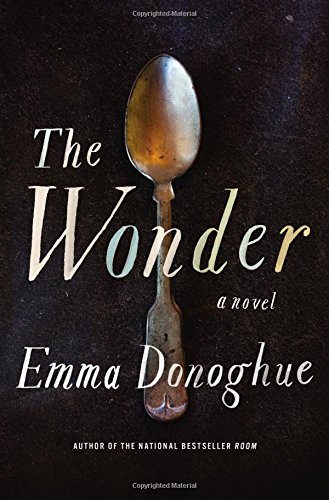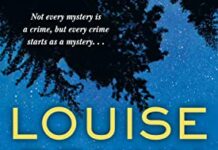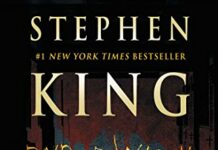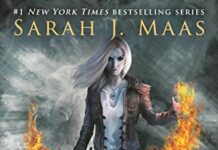
Ebook Info
- Published: 2016
- Number of pages: 304 pages
- Format: Epub
- File Size: 1.06 MB
- Authors: Emma Donoghue
Description
In this masterpiece by Emma Donoghue, bestselling author of Room, an English nurse is brought to a small Irish village to observe what appears to be a miracle — a girl said to have survived without food for month — and soon finds herself fighting to save the child’s life.
Tourists flock to the cabin of eleven-year-old Anna O’Donnell, who believes herself to be living off manna from heaven, and a journalist is sent to cover the sensation. Lib Wright, a veteran of Florence Nightingale’s Crimean campaign, is hired to keep watch over the girl.
Written with all the propulsive tension that made Room a huge bestseller, The Wonder works beautifully on many levels — a tale of two strangers who transform each other’s lives, a powerful psychological thriller, and a story of love pitted against evil.
Acclaim for The Wonder:
“Deliciously gothic…. Dark and vivid, with complicated characters, this is a novel that lodges itself deep” (USA Today, 3/4 stars)
“Heartbreaking and transcendent”(New York Times)
“A fable as lean and discomfiting as Anna’s dwindling body…. Donoghue keeps us riveted” (Chicago Tribune)
“Donoghue poses powerful questions about faith and belief” (Newsday)
User’s Reviews
Review “Fascinating…. Like The Turn of the Screw, the novel opens irresistibly, when a young woman with a troubled past gets an enigmatic posting in a remote place…. Heartbreaking and transcendent and almost religious in itself.”―Sarah Lyall, New York Times”A fine, fact-based historical novel, an old-school page turner…Donoghue has written, with crackling intensity, about [spirituality’s] power to destroy.”―Stephen King, New York Times Book Review”[Donoghue’s] contemporary thriller Room made [her] an international bestseller, but this gripping tale offers a welcome reminder that her historical fiction is equally fine.”―Kirkus Reviews (starred review)”Outstanding…. Exploring the nature of faith and trust with heartrending intensity, Donoghue’s superb novel will leave few unaffected.”―Sarah Johnson, Booklist (starred review)”Donoghue demonstrates her versatility by dabbling in a wide range of literary styles in this latest novel…. The closely imagined, intricately drawn story possesses many of the same alluring qualities as her bestseller, Room. …. Donoghue’s engrossing novel is loaded with descriptions of period customs and 19th-century Catholic devotional objects and prayers…[and] asks daring questions about just how far some might go to prove their faith.”―Publishers Weekly (starred review)”Donoghue is known for her bestselling novel, Room…. [But] she is also well versed in historical fiction. THE WONDER brings together the best of all, combining a gracefully tense, young voice with a richly detailed historical setting.”―The Millions”Readers of historical fiction will gravitate to this tale.”―Mary Ann Gwinn, Seattle Times”A riveting allegory about the trickle-down effect of trauma.”―Megan O’Grady, Vogue”Donoghue poses powerful questions about faith and belief all the while crafting a compelling story and an evocative portrait of 19th-century Irish provincial society.”―Tom Beer, Newsday”Donoghue’s superb thriller will keep readers hanging on to every word, pondering how far one will go to prove her faith.”―Liz Loerke, Real Simple”Gripping.”―Claire Stern, InStyle.com”What at first seems a simple matter becomes far more-stick with it, the payoff is there.”―Steph Opitz, Marie Claire”Fresh and unusually lively historical fiction. [Donoghue’s] latest novel brings together both her preoccupation with child peril and her gift for history.”―Boris Kachka, Vulture”A haunting novel about good vs. evil.”―Brenda Janowitz, PopSugar”Like [Room], THE WONDERexplores a dark, insular, and rigidly controlled environment…. Donoghue’s clever use of an outsider as narrator lets her explain anomalies to us-what a creepie is (a log stool) and why people tie rags to a tree (to hold their pain)-as she encounters them herself. But there is more to this mystery than superstitions and local dialect. Lib must decipher the private truths of Anna and her family, who have closed ranks in grief over the loss of a son. She must puzzle out the community itself and its contradictory beliefs in religion, science, and tradition. And Lib has her own sorrowful secrets, her own need for personal redemption. Donoghue deftly pairs the two stories, and as Lib uncovers the truth about Anna, she gradually owns the truth about herself.”―Roxana Robinson, O, The Oprah Magazine”Riveting…. Highly recommended.”―Valerie Koehler, Literary Hub”THE WONDER by Emma Donoghue is just that: ‘a wonder’ of a story about religious delusion and self-denial [that] teem[s] with drama and great moral questions…. Donoghue manages to engage larger mysteries of faith, doubt and evil without sacrificing the lyricism of her language or the suspense of her storyline.”―Maureen Corrigan, Fresh Air”Donoghue proves herself endlessly inventive…. This is the kind of book that will keep you up at night and make you smarter.”–Julie Buntin, Cosmopolitan”Rich hauls of historical research, deeply excavated but lightly borne…. [An] ingenious telling.”–David Kipen, Wall Street Journal”All spectacle and gothic horror and inevitably hard to put down.”―Stassa Edwards, Jezebel”Has that vivid, ripped-from-the-headlines feel that comes from an author’s utter fascination with a real-world subject…. THE WONDER is deliciously gothic…. Dark and vivid, with complicated characters, this is a novel that lodges itself deep.”―Steph Cha, USA Today, 3/4 stars”Fodder for endless book club debates.”―Meghan O’Gieblyn, Los Angeles Review of Books”A fine work, adept and compelling in voice, plot, and moral complexity…. Donoghue deals out the cards with real skill.”―Katherine A. Powers, Boston Globe”A locked-room mystery, set in atmospheric 19th-century Ireland and as spare, in its own way, as Room…. A fable as lean and discomfiting as Anna’s dwindling body…. Donoghue keeps us riveted to Lib’s perspective throughout…. Thanks to the complexity of Donoghue’s ideas, there’s plenty on which to ruminate.”―Amy Gentry, Chicago Tribune”Donoghue, a writer of great vitality and generosity-one gets the sense that she would gladly have her characters over for dinner, as long as they’d agree to eat-has been drawn repeatedly to the genre of historical fiction not so much to inhabit or reinterpret the past as to try to fit together its overlooked, missing pieces…. Fiction is small solace for history’s grief, but it’s one way to set the record straight.”―Alexandra Schwartz, New Yorker”A blazing historical novel.”―Marion Winik, Newsday”Donoghue is a master of plot, and her prose is especially exquisite in depicting ambiguity… Lib is a heroine the modern woman can admire.”―Sarah Begley, Time Magazine”As in “Room,” Ms. Donoghue proves a shrewd observer of the parental urge to distort reality to protect children-and themselves”―Sam Sacks, The Wall Street Journal”Donoghue’s measured prose is at its best when depicting damaged and failing flesh with extraordinarily vivid economy”―Financial Times”An excellent new novel that is as much a mystery as it is an analysis of the extent to which some people are governed by their faith.”―Houston Chronicle”A haunting page-turner, filled with Donoghue’s enchanting phrasemaking―The Seattle Times”This a completely engrossing read-you will barely be able to tear yourself away from it”.―Next Avenue
Reviews from Amazon users, collected at the time the book is getting published on UniedVRG. It can be related to shiping or paper quality instead of the book content:
⭐ The Wonder by Emma Donoghue is a masterfully written mystery, and the detective is a young English nurse who has been hired to come in as an outside observer to determine the validity of the claim of a rural Irish family that their eleven year old daughter has taken no food for four months, and yet, is miraculously thriving. This nurse, Lib, expresses well the prejudices of the English towards the Irish and their beliefs. (The novel takes place not long after the end of the Great Potato Famine, and so there are intense feelings between the two cultures.) The focus of the story is on a young girl, Anna, who is seen locally as being specially blessed by God, and yet, as the story unfolds we come to see that she represents a perfect storm of pressures arising from devotion to God and religious fanaticism, love of family and family dysfunction. Lib, as a well-trained nurse, arrives with total skepticism, assuming that the child herself is perpetuating this hoax, but Anna’s simplicity and purity of heart gradually win Lib over. The challenge then becomes: How to keep this child alive? As with all good mysteries, just about every character has ulterior motives of one kind or another to want the phenomena to be real… the priest, the doctor, the innkeeper, the parents. It is only the trust that slowly builds between Lib and Anna that creates a ray of hope. So much happens towards the end of the book that I was transfixed. The book gave me much to ponder about how children are influenced, for good or ill, by those around them. After finishing it, I immediately went back to read the last three chapters again so I could better appreciate all that contributed to Anna’s dire situation. I happen to be a child psychologist, so these issue matter to me, but I think Donoghue’s novel will have wide appeal. This is a very worthwhile read.
⭐ This book is a delight to read on so many levels. The story is compelling and interesting and the writing is very good. In addition to containing a disturbing mystery, the novel poses questions about medical ethics and morality. A good book makes you think and I am still thinking about this one a few days after finishing.The story is set in southern Ireland in 1859, over the period of two weeks. Lib is a widow who became a nurse after her husband of one year died. She was a Nightingale, as in trained by Florence, and was working in a hospital in England after the Crimea War. Her matron suggested Lib travel to Ireland to be a nurse in the O’Donnell household for two weeks. She agrees, but nothing is as she anticipated. Lib has been hired by a committee of townsfolk to “observe” 11 year old Anna O’Donnell for two weeks. The child has not eaten in 4 months and the committee wants to know if this is a hoax or divine intervention as the family claims. The child reports that she receives manna from heaven. People come from all over to see the devoutly religious miracle child. Lib and a local nun are to take shifts and simply observe to see if the child is taking in any food. Lib is out of place in Catholic Ireland and is convinced that the whole thing is a trick. She is a firm believer in facts and science and has nothing but disdain for religion. As she spends time with Anna, an unlikely friendship develops. Lib remains very skeptical of the family and some of the townspeople. She is befriended by a newspaper reporter sent there to cover the story. Together, they begin to discover the horrible truth. As Anna’s health begins to fail, Lib begs the local physician and the committee to end the watch period and intervene. She soon discovers that everyone has their own agenda, including building up the local church if Anna is declared a saint. Lib knows that she needs to act fast, but she is torn between duty and love.There are so many lovely layers to this novel. The characters have hidden secrets, some of them quite horrifying. It is chilling to learn how far people will go to further their own desires. Far enough to endanger the life of a child and to convince her that she is doing the right thing by starving herself. There are themes of guilt, family loyalty, the goodness and dangers of religion, misperceptions and assumptions, and medical and moral ethics. The story is a slow burn that builds to some startling conclusions. The book is hard to put down and well worth your time.
⭐ My first exposure to Donoghue’s work having been her rowdy, bawdy, proto-feminist 18th-century novel “Slammerkin” (rather than the now-iconic “Room”), I was anticipating nothing but pleasure from another period piece, and my expectations were richly rewarded. “The Wonder” is the story of Lib Wright, a nurse who served with Florence Nightingale in the Crimea, who is called to a small town in Ireland as a caretaker and professional witness regarding what the locals believe to be a miracle: a young girl, Anna, who can live without eating, who claims to be sustained by “manna from heaven.” Lib is sure that the child is a fraud, and goes into the situation with the intention of exposing her. By the end of a comparatively short book, this simple premise has managed to embrace a massive wealth of ideas, but you don’t have to think about them if you don’t want to…the story is compulsively readable, and if all you want is a good tale, you’ll have that. And if by chance you want to look at this book as a stunning parable, you can do that, too.The characters are incredibly well drawn, the writing is sharp and deft, and Donoghue does one of my favorite things in period fiction– she “gets,” deep in her bones, that the way people wrote prose in the 19th century was not the way they spoke. One of the mistakes that amateur period fiction writers make is speech that sounds too formal; 19th-century speech wasn’t much different from how we speak now, as can readily be seen from song lyrics, telegrams, casual correspondence, and particularly dialogue written by popular authors of the day. Written expression was much more structured than it is now, however. Donoghue knows this, and one of the delights of the book is the difference between the spoken dialogue, and the newspaper dispatches of journalist William Byrne, who is investigating the miracle child himself.Even the best book has its flaws, and this one is no exception; for example, the reader must choose to accept that certain very profound, lasting, and real emotional experiences can happen in fewer than ten days. But the few small coins of credulousness you will spend are well worth the shower of gold you’ll get as a return on your investment.
⭐ I like the author’s writing style, she paints a picture of the surroundings, the mood, the scenery, and injects that into the story full of odd characters. The summary of the book looked like it had the ingredients to be a deep and moving spiritual type of story with a jaw-dropping ending, but it was anything but that. Instead, it was a boring, slow page turning book that didn’t satiate the intrigue and unpredictability I was hoping for. Perhaps I set the bar high for this author, and I was sorely disappointed. The book dragged on quite a bit, until the news reporter discovers that little Anna is dying of starvation.Things finally turn a corner, but that corner took a long time to turn. The themes are nothing new with respects to the length people go to live a life fully devoted to God and all the powerful. The end (without giving anything away) wasn’t predictable, at least for me, it caught me off guard, but it wasn’t something I would reel over and relish the moment or days after I finished the book. 3 stars for a story that had potential and finally came together in a twisted and unpredictable manner.
⭐ Words can’t to do this story justice. Personally, I do not enjoy nineteenth century writing. Nor do I find reading Irish, British or other forms of European English dialects; only because the vocabulary is difficult for me which causes me to stutter in my reading. However….this book had me hooked and I was able to overcome my shortcomings. The revelations were so intriguing and surprising! You have to read this beautiful written book!
⭐ An absolute truth: shows the prejudice of the English against Irish Catholics: that they are all shiftless, thriftless and hopeless. The English nurse Lib, who studied nursing under the great Florence Nightingale, at first thinks that Anna’s family is running a scam and that Anna is a willing part of it. People are coming from all over to see the miracle girl and leave a few coins in the box, which Anna’s mother insists is for the poor. Lib is assuming: suuure it is. Yet there is so much more going on here. For instance, Anna’s brother Patrick is “gone” and Lib assumes he went to America. Lib will find the truth is: anything but her assumption.There is a terrible secret lurking under all of these assumptions. Secrets are the bane of Irish families and I say this being part Irish myself. Secrets take on a life of their own. Keeping a secret becomes the highest priority, more important that the well-being of children. Secrets grow and spread like malignant tumors. Secrets seep poisons into all subsequent generations. The trauma never goes away.The Wonder truly is a wonder. The ending will blow you away.
⭐ The first book I read by this author was “Room”. I was utterly enchanted and completely convinced by her narration as a five-year-old boy. Naturally, I was hungry for more.The Wonder is almost 180° from Room. Our narrator is a 20some-year-old young nurse trained under Florence Nightingale, who is hired to watch an 11-year-old girl everyone thinks has subsisted on nothing but water for four months. In heavily Catholic Ireland, the people are looking to her in hopes of a newly canonized saint. But there’s more. So much more that weaves its way through this basic premise that will shock and surprise at every turn.That’s all I’ll say except that this book is smart… Oh, so smart! The dialogue is authentic and engaging. The philosophy is such that I’ll read it again and really take time to savor every bit. I confess to reading this way too fast; it’s too easy as the story hits its stride and begins to reveal its secrets.To say that Mrs. Donoghue is a great author undersells her talent. She is a writer who will leave a legacy equal to the most important and prolific authors of the early 20th century, such as Joyce and Woolf. Her gift for narrative… authentic and convincing narrative… is nothing short of awe-inspiring.How grateful I am to have found her.
⭐ It’s very slow-going at first, but it’s worth slogging along. People you think are enemies turn out to be allies, but everyone acts in their own way, not according to how the main character wants them to work, and that’s frustrating to the main character, because she thinks she’s alone in trying to save the girl from herself. What grabbed me was the understanding I got of people I would normally call ignorant and superstitious. Without the educational or intellectual advantages of wealthier people, they fall back on the platitudes of the Church and many of the religious establishment encourage that, or are in that category themselves, so can’t really help their flock. That was a revelation. There are bad actors here, falling back on religious superstition, but underlying the some of the family’s bad actions are ignorance and innocence. The priest is another character, altogether–hiding behind the confidentiality of the confessional to keep from doing anything. All in all, though, this is well-written and can pull you in if you let it.
⭐ I enjoyed the story line. It was somewhat predictable, but still engaging.Surprisingly, I was a bit disappointed in the people chosen as characters. The children were far better actors than the adults. They did not seem to bring much to the overall dramatization.It is not that the movie needs extreme emotional input. Just thought the children outshined the adults. I have dealt with bullying towards my son. It never fails to be confusing. If the head master knew of the abuse (maybe not the extent of it) but certainly some knowledge, and there is a ZERO tolerance policy in place, why wasn’t something done sooner?I also felt the award at the end should have been shared with the friends who stood up against the bullying. They all were faced with a certain amount of abuse…but they chose to be courageous. That is certainly note worthy in this day and age.
⭐ I’m a nurse so hearing that the main subject was a nurse trained by the infamous Florence nightingale had me intrigued. The first half of the book was laborious to get through but the story got more interesting as it went on and secrets were revealed. I then lapsed into disappointment at it’s unlikely conclusion based on my nursing experience. On the + side it does have some interesting historical moments. Overall though … the next time I find myself pushing through a novel I will stop wasting my time if it doesn’t grab me sooner! Plus this one had some images in it that at least for me I did not need to imbed in my brain.
Keywords
Free Download The Wonder in Epub format
The Wonder Epub Free Download
Download The Wonder 2016 Epub Free
The Wonder 2016 Epub Free Download
Download The Wonder Epub
Free Download Ebook The Wonder





